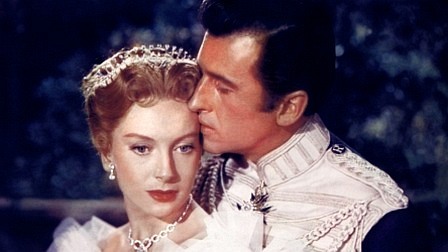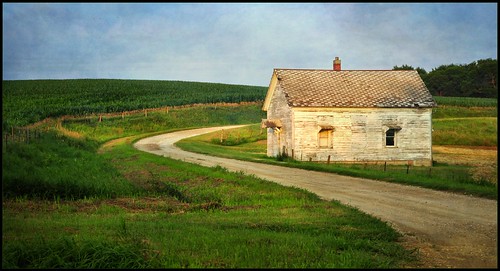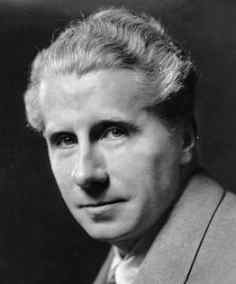Jay Gatsby and Daisy Buchanan in The Great Gatsby by F. Scott Fitzgerald
It is one of the greatest tragic romances in all of literature. It is something we all hoped would be, but would never happen. It is the green light, forever just out of our reach. In so many ways, the relationship between Gatsby and Daisy embodies everything that was beautiful and sad about the Roaring 20s.
“His heart beat faster and faster as Daisy’s white face came up to his
own. He knew that when he kissed this girl, and forever wed his
unutterable visions to her perishable breath, his mind would never romp
again like the mind of God. So he waited, listening for a moment longer
to the tuning fork that had been struck upon a star. Then he kissed
her. At his lips’ touch she blossomed like a flower and the incarnation
was complete.”
Rudolf Rassendyll and Princess Flavia in The Prisoner of Zenda by Anthony Hope
The struggle between love and duty is as old as anything, and we see it played out here again in Anthony Hope's famous swashbuckler. Though Rassendyll and the Princess love each other intensely, they never lose sight of how their own desires could harm so many others. It is both heartbreaking and inspiring to watch them selflessly let each other go.
“There are moments when I dare not think of it, but there are others when I rise in spirit to where she ever dwells; then I can thank God that I love the noblest lady in the world, the most gracious and beautiful, and that there was nothing in my love that made her fall short in her high duty.”
George Emerson and Lucy Honeychurch in A Room With a View by E. M. Forster
For a good girl like Lucy Honeychurch, George Emerson was not the kind of man to be in love with. His and his father's brash and radical ways upset everything about her proper English upbringing. But one moment in a meadow outside of Florence changes everything and Lucy is forced to deal with some overwhelming feelings.
“It isn't possible to love and part. You will wish that it was. You can transmute love, ignore it, muddle it, but you can never pull it out of you. I know by experience that the poets are right: love is eternal.”
Rudolf Rassendyll and Princess Flavia in The Prisoner of Zenda by Anthony Hope
The struggle between love and duty is as old as anything, and we see it played out here again in Anthony Hope's famous swashbuckler. Though Rassendyll and the Princess love each other intensely, they never lose sight of how their own desires could harm so many others. It is both heartbreaking and inspiring to watch them selflessly let each other go.
“There are moments when I dare not think of it, but there are others when I rise in spirit to where she ever dwells; then I can thank God that I love the noblest lady in the world, the most gracious and beautiful, and that there was nothing in my love that made her fall short in her high duty.”
George Emerson and Lucy Honeychurch in A Room With a View by E. M. Forster
For a good girl like Lucy Honeychurch, George Emerson was not the kind of man to be in love with. His and his father's brash and radical ways upset everything about her proper English upbringing. But one moment in a meadow outside of Florence changes everything and Lucy is forced to deal with some overwhelming feelings.
“It isn't possible to love and part. You will wish that it was. You can transmute love, ignore it, muddle it, but you can never pull it out of you. I know by experience that the poets are right: love is eternal.”
George Knightley and Emma Woodhouse in Emma by Jane Austen
It is always worth including an Austen pair on a "Best Couples" list. It takes Emma FOREVER to realize that George Knightley is the perfect man, but she eventually figures it out. After lots of missteps along the way, Emma is able to recognize true love and gives her heart to the one man who knows how to handle it.
“I cannot make speeches, Emma...If I loved you less, I might be able to talk about it more."
Who are your favorite literary couples? Share with us below!
























